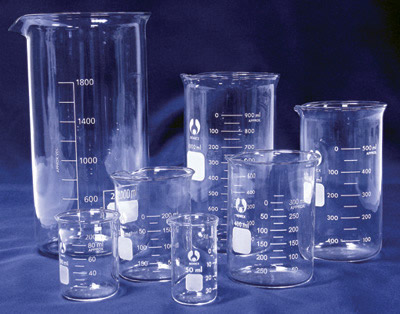
Methods and requirements for use of laboratory glassware
Release date:2020-01-16 15:13:39Methods and requirements for use of laboratory glassware
Time: 2019-03-02 10:03
1, general glass instruments (such as flasks, beakers, etc.) : first rinse with tap water, then wash with soap, washing powder with a brush, then rinse with tap water, finally rinse with purified water for 3 times (should be washed along the wall and full shock, in order to improve the washing effect).
Measuring glass instrument (such as burette, pipette, measuring bottle, etc.) : can also be soap, washing powder washing, but can not be brushed with brush.
2, precision or difficult to wash glass instruments (burette, pipette, measuring bottle, colorimetric tube, glass vertical funnel, etc.) : first rinse with tap water, then drain, then treat with chromic acid cleaning solution for a period of time (generally left overnight), then rinse with tap water, finally rinse with purified water for 3 times.
3, when washing the instrument, should first wash the hand with soap, in order to avoid the oil on the hand dirt attached to the instrument wall, increase the difficulty of washing.

Methods and requirements for use of laboratory glassware
4. A cleaned glass instrument should be free of water droplets (when the cleaned instrument is upside down, no water droplets should be suspended on the wall of the instrument after the water flows out).
Drying of glassware
(1) air drying: for the instrument that is not urgent to be used, it can be placed on the instrument rack and dried naturally in a dust-free place.
(2) the instrument for urgent use can be dried with glass instrument air dryer (temperature is appropriate at 60 ~ 70℃).
(3) the measuring glass instrument shall be naturally drained and cannot be baked in the oven.
At the same time, the storage of glass instruments: to be placed in different categories in the test cabinet, to be placed safely, high, large instruments in the inside.A piece of paper should be placed between the stoppers for the grinding equipment to be kept for a long time, so as not to stick.
Last article:Precautions for installation and use of silicon molybdenum rod
Next article:最后一頁

